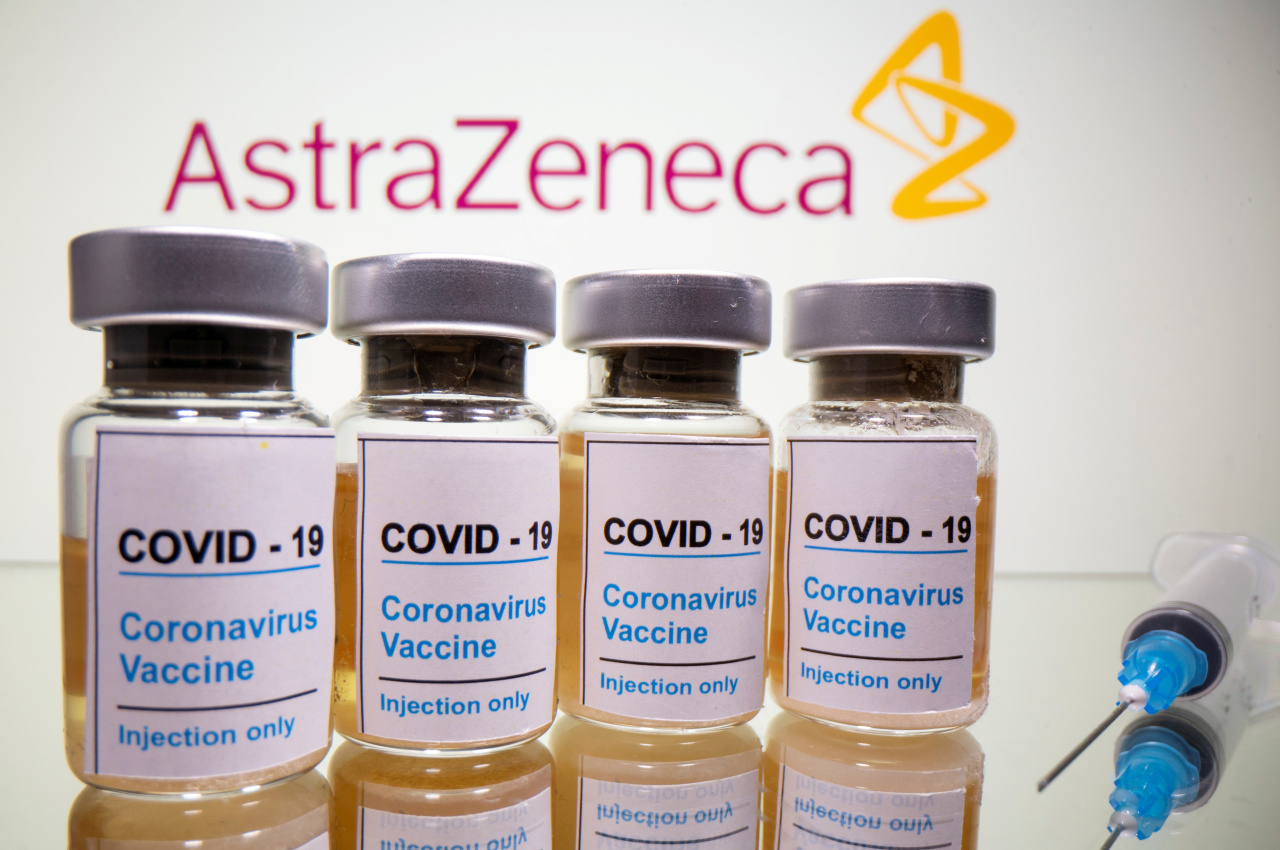Korea pushes back announcement on AstraZeneca COVID-19 vaccine as EU regulator adds warning
By Kim ArinPublished : March 19, 2021 - 19:37

Korean health authorities on Friday have postponed an announcement of their response to the European medical regulator’s verdict on the safety of AstraZeneca’s COVID-19 vaccine, after it once again vouched for jab, but without fully dispelling concerns surrounding the side effects.
The Korea Disease Control and Prevention Agency had said earlier that it would be giving its official opinion on the European Medicines Agency’s announcement at 2 p.m. Friday, but pushed it back to Monday at the last minute, saying a “thorough look through” appeared necessary.
In Tuesday’s press briefing, the agency had said it would decide on how to proceed with the AstraZeneca rollout here based on what the EMA has to say.
In a statement released early Friday morning here, the EMA said that the AstraZeneca shot is “safe and effective,” but could not rule out a link to the very rare blood clot events.
“A causal link with the vaccine is not proven, but is possible and deserves further analysis,” the agency said, adding that it would be launching additional investigations into the small number of cases.
In particular, the EMA noted that two conditions involving blood clots -- disseminated intravascular coagulation, or clots in multiple blood vessels in the body, and cerebral venous sinus thrombosis, or brain clots -- were reported more frequently than expected in people given the vaccine.
The majority of those affected were women under 55 years of age.
The agency recommended warning health care providers and the public about the risks, and informing them about the signs and symptoms to watch out for.
Korea has reported two cases of blood clots developing in AstraZeneca vaccine recipients. One was a chronically ill patient in her early 60s, and the other a first responder in his 20s. As of Thursday midnight, more than 608,000 people here were inoculated with their first AstraZeneca vaccine dose.
Epidemiologist Dr. Chun Byung-chul, who sits as the vice president of the Korean Vaccine Society, said that the findings from the EMA suggested “a need for some caution.”
“The most dangerous thing we can do in a situation such as this is to ignore the warnings for the sake of allaying public fears, and then blindly ploughing through,” he said.
Chun said similar cases might not have surfaced in the UK, as older people at lower risk of such complications were the first to be vaccinated there. The UK, which backs the homegrown vaccine, has its own data from the mass campaign to base the recommendations on.
“But Korea is having to rely on what regulators elsewhere figure out,” he said, urging more efforts from public health officials to analyze the vaccine data in Korea.
“About 1 percent of Korea’s some 51 million population has had the vaccine. That’s a big enough number for the (Korea Disease Control and Prevention Agency) to be able to provide some overview,” he said. “What Korea is doing right now is passive, as opposed to active, surveillance.”
Given the lack of analysis at home, he said not pausing deliveries of the jab while the country awaited the EMA report “might have been reckless” -- “What if something was definitively wrong?”
Chun said as vaccinations continue, the authorities should clearly communicate the potential risks with the public, while clinics and hospitals should be prepared to quickly recognize and treat any post-jab reactions.
Dr. Kim Woo-joo, an infectious disease professor at Korea University, said he had expected the European regulator to continue to recommend the vaccine’s use overall, but was surprised to discover “some worrisome details.”
Kim said it “all comes down to weighing the benefits against the risks.”
“We can approach AstraZeneca vaccinations from two standpoints. From a public health perspective, using the vaccine is far more beneficial. As most of our supplies in the first half of the year come from AstraZeneca, putting the shot on hold would be the same thing as halting vaccinations altogether.”
But it was also true on a very personal, microscopic level, the possibility of a risk -- however miniscule -- cannot be excluded, he said.
“There is no doubt it is in our collective interests to continue vaccinations,” he said. “Once the vaccine is administered to large populations, more side effects unseen in clinical trials may very well emerge. It is the job of the authorities to investigate if there is a connection and relay the findings promptly.”
Friday’s warning from the EMA is likely to hinder vaccine uptake, according to International Vaccine Institute chief Dr. Jerome Kim.
“It seems that (the vaccine) is safe,” he said. “The UK regulator, Medicines and Healthcare products Regulatory Agency, has continued to say the vaccine is safe, and France, Italy, Portugal and Spain are resuming.”
But the unanswered question was “whether the observed findings -- cerebral vein thrombosis with low platelets -- are rare, unique and attributable to the vaccine or rare, unique and caused by something else,” he said.
“The EMA is comfortable adding a warning to doctors to look out for this. Does it undermine confidence in a vaccine that so far appears to be safe and efficacious? Yes. Will it slow down vaccination in Europe? Yes, despite countries resuming use.”
By Kim Arin (arin@heraldcorp.com)











![[From the Scene] Monks, Buddhists hail return of remains of Buddhas](http://res.heraldm.com/phpwas/restmb_idxmake.php?idx=644&simg=/content/image/2024/04/19/20240419050617_0.jpg&u=20240419175937)



![[From the Scene] Monks, Buddhists hail return of remains of Buddhas](http://res.heraldm.com/phpwas/restmb_idxmake.php?idx=652&simg=/content/image/2024/04/19/20240419050617_0.jpg&u=20240419175937)

![[KH Explains] Hyundai's full hybrid edge to pay off amid slow transition to pure EVs](http://res.heraldm.com/phpwas/restmb_idxmake.php?idx=652&simg=/content/image/2024/04/18/20240418050645_0.jpg&u=20240419100350)

![[Today’s K-pop] Illit drops debut single remix](http://res.heraldm.com/phpwas/restmb_idxmake.php?idx=642&simg=/content/image/2024/04/19/20240419050612_0.jpg&u=)